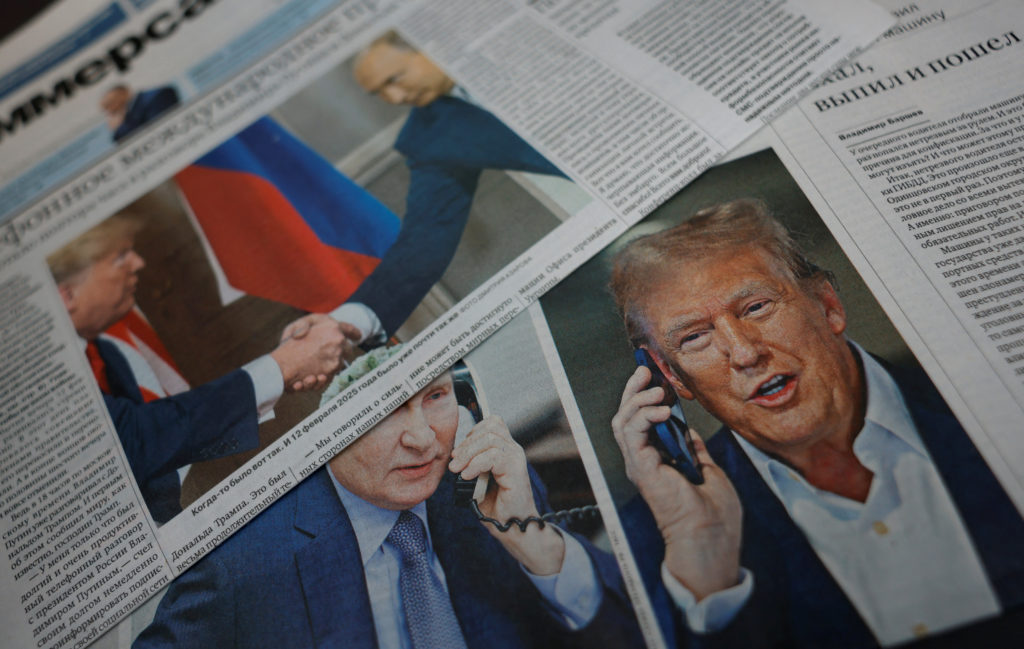High-Stakes Diplomacy Explained: Insights from Key Global Conversations and Their Impact on Peace

Understanding High-Stakes Diplomacy: Perspectives from a Crucial Conversation
High-level diplomatic interactions often shape the course of global events and can be pivotal in resolving or exacerbating conflicts. A recent phone call between two world leaders has highlighted the complexities of international relations and the challenges of achieving peace in regions embroiled in conflict. This conversation, which centered on ongoing military operations, underscores the resilience of strategic goals and the determination of nations to achieve their objectives.
The geopolitical landscape is continuously evolving, influenced by the interactions between major powers. In this context, diplomatic engagements play a crucial role in mediating crises and exploring pathways to peace. The conversation in question reflects the ongoing efforts by nations to navigate complex geopolitical situations while maintaining their strategic interests. Understanding these dynamics requires a deep dive into the historical and current contexts that shape international relations.
Key milestones in international diplomacy often revolve around critical interactions between leaders. These moments can mark significant shifts in policy or reinforce existing positions. The current situation is no exception, as nations seek to balance their interests with the need for stability in volatile regions. The emphasis on achieving strategic goals highlights the challenges of mediating conflicts where multiple parties have deeply entrenched positions.
Core terminology in foreign policy discussions often includes terms like "special military operations" and "diplomatic negotiations." These phrases encapsulate the nuanced strategies employed by nations to achieve their objectives while engaging in diplomatic efforts. The use of such language reflects the complexity of balancing military actions with diplomatic overtures in pursuit of long-term goals.
Origins of Current Conflicts
Recent conflicts have roots in historical, political, and economic factors. Understanding these origins is crucial for developing effective solutions. In regions experiencing prolonged military actions, the strategic goals of involved parties often diverge significantly, making diplomatic progress challenging. The current situation reflects these broader trends, with nations adhering to their stated objectives despite ongoing diplomatic efforts.
Historical context is essential in understanding the evolution of conflicts. The roles of key players, including major powers and regional actors, influence the trajectory of these conflicts. The pursuit of strategic goals is often shaped by a combination of security concerns, economic interests, and geopolitical alliances.
Pivotal Moments in Diplomacy
Pivotal moments in diplomacy can significantly impact the course of international relations. These moments often result from strategic interactions between leaders, such as high-level phone calls or face-to-face meetings. The ability to navigate these interactions effectively is crucial for achieving diplomatic breakthroughs or maintaining stability in volatile regions.
Recent diplomatic efforts, including prisoner exchanges and ceasefire agreements, highlight the ongoing quest for solutions. These initiatives reflect the broader context of international relations, where nations seek to balance their interests with the need for peace and stability. Despite challenges, diplomatic channels remain open, offering a path forward in complex geopolitical situations.
Core Terminology and Concepts
Key concepts in international relations, such as "sovereignty" and "diplomatic immunity," are central to understanding the dynamics of global politics. These terms encapsulate the principles that guide interactions between nations, influencing how they engage in diplomacy and pursue their strategic objectives. The use of diplomatic language and the adherence to international norms are critical in maintaining order in the global system.
The strategic goals of nations are often communicated through diplomatic channels, reflecting a delicate balance between assertive pursuit of interests and cooperative engagement with other nations. This balance is crucial for achieving stability and advancing peace in regions experiencing conflict.
Future Perspectives
Looking ahead, the future of international relations will likely be shaped by ongoing diplomatic efforts and strategic interactions between major powers. The ability to navigate complex geopolitical situations effectively will be crucial for achieving peace and stability in volatile regions. As nations continue to pursue their strategic goals, the importance of maintaining open diplomatic channels cannot be overstated.
Ultimately, the success of diplomatic initiatives depends on the willingness of nations to engage constructively while pursuing their objectives. This requires a deep understanding of the historical, political, and economic contexts that influence international relations. By focusing on these dynamics, nations can work towards achieving their goals while contributing to a more stable global environment.
Conclusion
In the realm of international diplomacy, high-stakes conversations can have profound implications for global stability and peace. Recent interactions between world leaders highlight the complexities of navigating geopolitical conflicts while maintaining strategic objectives. Understanding these dynamics is essential for developing effective diplomatic strategies that balance national interests with the pursuit of peace.
As nations continue to engage in diplomatic efforts, the importance of maintaining open channels of communication and fostering cooperation cannot be overstated. By navigating the complexities of international relations effectively, nations can work towards achieving their goals while contributing to a more stable and peaceful world.
